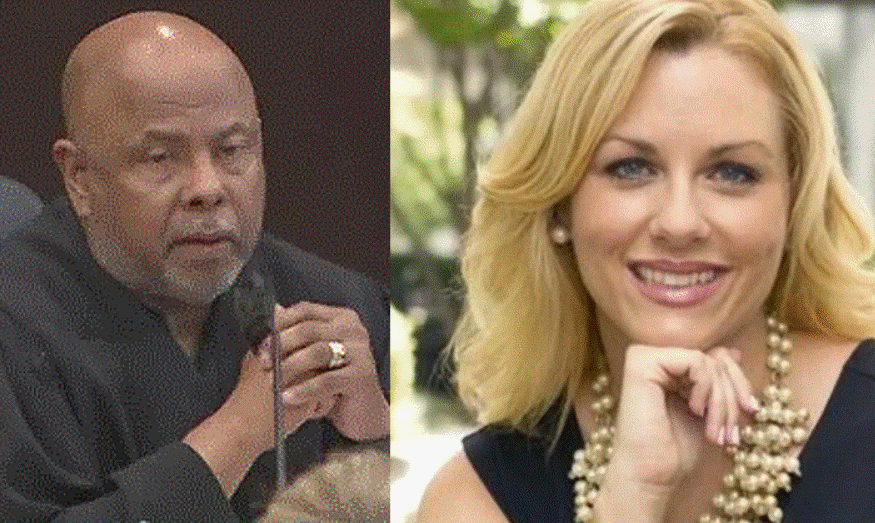JUDGE GLANVILLE SAID HE “WAS DISTURBED”

By SNN.BZ STAFF
Judge Ural Glanville of Fulton County, Georgia today committed an egregious legal error when he was publicly “called out” in open court by “Young Thug’s” lawyer, Brian Steele.
The lawyer refused to tell the judge how he learned that the judge had held an ex parte meeting with a witness that had just been sworn in this past week and that he knew Fani Willis was one of the participants when he and none of the defense lawyers were invited.
NOTE: “Young Thug’s” attorney, Brian Steel was held in contempt of court Monday afternoon and later sentenced to serving weekends in the Fulton County jail. The incident unfolded after Steel approached the bench after the lunch recess. He told the judge that he knew about the ex parte conversation that happened before court on Monday morning. The conversation, he said involved the judge, prosecutors (that included Fani Willis), and witness Kenneth “Lil Woody” Copeland. In the conversation, Copeland’s admtted to killing Donovan “Nut” Thomas Jr. Thomas’s 2015 murder is something prosecutors have been trying to prove Young Thug was involved in.
The judge realized he had made a judicial error and tried to walk-it-back but he was already too far gone into his rage and his pride wouldn’t let him back down – instead – he doubled down and had the attorney arrested in the court room in front of his client and remanded to jail.
At first the Judge looked embarrassed and ashamed, but that emotion was quickly followed by fury that Steele called him out and refused to tell the judge how he found out about the ex parte meeting.
Steel told the judge that he could not tell him because doing so constituted violating the client-attorney privilege he had with his client, and it would be in direct violation of his standing with the Georgia Bar Association. He claimed he would not jeopardize his law license.
The Judge was so angry that he told the bailiff to haul the attorney off to jail. Judges have been removed from the bench for far less recklessness than this spectacle.
Steele asked the judge to recuse himself and the judge said that he would not recuse himself and instead threw Steele in jail. Ashleigh Merchant, Esq. is Brian Steele’s attorney.
The judge is highly embarrassed and confused about the difference between criminal and civil contempt. The judge is mistaken on that point for multiple reasons that Brian Steel’s lawyer, Ashleigh Merchant will make clear. The judge is mistaken about the law and continues to make mistakes (it would have been easier to fix this if he hadn’t lost his temper publicly).
He’s raging mad because he’s been openly called out. Ashleigh is letting him know that the case has to go to another judge. He cannot both be a witness and also serve as the judge on the same case. Many judges have lost their seats for less than taking this position. The judge is refusing to give in which is excellent for Brian Steel because the judge being stubborn on the matter will help manage the judge’s stubbornness in the future when the case is resolved. The judge’s demands are out of line. This judge met with Fani Willis and others with a witness who had already been sworn in.
In the United States, including Georgia, judges are typically accountable to various oversight bodies and mechanisms. Here’s a breakdown:
Judicial Qualifications Commission (JQC): This body exists in many states, including Georgia, to investigate complaints of judicial misconduct or incapacity. The JQC can investigate allegations against judges and recommend disciplinary action if necessary.
Georgia Supreme Court: The highest court in the state, the Georgia Supreme Court, can review decisions made by lower courts, including instances of judicial misconduct or errors.
Court of Appeals: Similar to the Supreme Court, the Court of Appeals in Georgia can review decisions made by lower courts, including any perceived judicial errors or misconduct.
Legislature: In some cases, the state legislature may have the authority to impeach judges for misconduct or other offenses.
Judicial Review Councils or Committees: There might be specialized bodies or committees within the judiciary responsible for reviewing complaints against judges and taking appropriate action.



